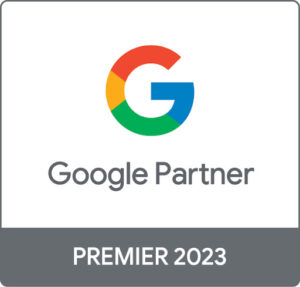As Google learns to think human, we must too…
When I first started learning SEO in my bedroom (humble beginnings) 9 years ago, I drilled Google’s mission statement of “to organise the world’s information and make it universally accessible and useful” into my head.
Why? Because I knew that to be the best at SEO, I (a human) needed to think like Google (a machine).
About 18 months ago (2015) Google announced the extension of RankBrain, a machine-learning AI (artificial intelligence) system to process search queries. Hello Skynet.
Google makes algorithm updates all the time – up to 200 times per year – but with Rankbrain, Google made some serious shifts towards machine learning that will change both SEO and the way content is delivered through search engines in the near future.
Hey, Google has been doing this for a while, some suggest that Rankbrain is just a continuation of Hummingbird, the update behind helping Google to identify the intent behind search queries by serving content that satisfies that intent rather than just the content that best matches the user’s keywords.
Basically, it seems that Google is replacing humans from Google with a machine-learning artificial intelligence system to appear more human, to humans..?
What is Google Rankbrain and why is it important?
Rankbrain is Google’s name for its machine-learning algorithm it uses to index, organise and return the best (or most relevant) results for user search queries.
The algorithm attempts to understand and learn what people really mean with their search queries using every available piece of data – social, user profile, click patterns, browser history, phone usage, etc. – at its disposal to return the best, most suited search results.
For example, Rankbrain can deal with ambiguous (more human-like) queries, such as, “What happened at the Oscars last night?” and return relevant results to the user.
Is Google a machine learning to think like a human?
But with Rankbrain, Google uses behavioural data in the form of organic click-through-rates, bounce rates, time spent on site, page views, click patterns, etc. to measure user satisfaction from the results it serves to users. It tests whether or not the content it serves (page, video, image, etc.) actually does what it promised to do in relation to the user’s initial query.
Basically, Google is collecting a massive amount of data on you and using that data to personalise your search experience. So, if the core idea of the Rankbrain algorithm is for it to learn what results users find most useful using data from our own behaviours – that can’t be a bad thing, can it?
How does Rankbrain measure user satisfaction?
Imagine how much data Google collects every single day. Search data from Google.com, website user behaviors from Google Analytics, Internet browsing information from Chrome and our most natural human habits from using Android phones.
Now imagine what something as powerful as Rankbrain does with that data every single day. Just for context – there are 58,993 Google searches per second, which is just under 6 billion Google searches per day. Google Chrome has over 1 billion active users and Android has over 1.6 billion users.
That’s how.
Be more human
What kind of impact will Google Rankbrain have on SEO?
From my experience, tests and observations since it was released, and for the reasons I’ve stated above – I believe Google’s Rankbrain is primarily an algorithm based on interpreting raw data from human interaction and behaviours.
Eventually, digital marketers will have to think beyond the traditional building blocks of SEO and get much smarter about the way they create and optimise content. User experience is key – keep your visitors on your site, keep them satisfied and ensure their experience is the very best it can be.
How do you optimise your website for Rankbrain?
My best answer? Be more human.
Yes, you still need an optimised site. Yes, you still need to target keywords. And yes, you still need backlinks to rank organically. But, SEO in 2017 and beyond will gradually incorporate user experience and human behaviour signals too.
In 2017, SEO is about answering the questions that your audience are asking search engines about your business, your industry and what your business offers. Find out everything your customers are asking and create well-optimised, easy to digest and authoritative content that answers these questions.
Promote these rich pages to influencers to gain awareness and links that drive authority, and therefore increase search engine rankings.
Thinking beyond keywords
To win the SEO rat race in this new, machine-learning world, we must understand the context in which search queries are made, to create content that provides complete satisfaction and value to the visitor. After all, Google is trying to build the greatest resource to organise the world’s information.
That’s not to say that targeting keywords just isn’t important anymore – don’t worry, it’s just as important as it once was.
However, what’s more important is understanding user intent for the keywords you’re targeting and creating content that satisfied their query. The Rankbrain algorithm will automatically help you rank for a wider variety of phrases if you intelligently target a set of keyword topics that searchers are asking for information on.
Instead of simply picking a list of keywords to optimise a page(s) for, you should optimise pages based on concept and topic keyword targeting.
Thinking more human
“I want to help people who need to book family ski holidays in France…”
I then think about absolutely everything that people who wanted to book family ski holidays in France would need when they visited my page. Do they need information about flights? About the childcare options? The food? Accommodation? Ski hire? Ski lessons? What they need to pack? Etc.
“I’ll try to build all these ideas from my brainstorming session into my content.”
How easy can I make it for users to scan and absorb this information? Does is truly satisfy their intent for their search query? How can I make this content better? These are all questions that we should be asking ourselves from now on.
The result will be a much higher quality piece of content, webpage or resource that if your users love, Google will love too. The new rules are simple; the more you can satisfy your visitors, the higher your website will go.
Google Rankbrain will become a big win for both content creators and consumers. It’ll force marketers to get smarter, stop cheating the system and, ultimately, produce better content – which can only be a good thing.
Does machine learning change our approach to SEO?
Our approach at Seed has always been about the bigger picture – we don’t just focus on a few keywords, stuff pages with them and build links for the sake of driving pages up the SERPs. Rather, we’ve always thought about the value of pages – and before we publish anything, we ask ourselves, “Why would Google rank this page?”.
That question, which has driven the success for countless successful SEO campaigns over the last 5 years, has indeed started to change, but only slightly… “Why would Google rank this page, and does it satisfy users to the best of my ability?”
Our fundamental principles of great SEO haven’t changed. For reference, they are:
- Make sure Google can crawl and index your website quickly, easily and without technical issue.
- Understand who your audience are and what they value.
- Research keywords to identify the types of queries your audience are searching for.
- Give your website a clean and logical structure with great user experience.
- Map out your keywords to ensure every page is optimised and has its own unique focus.
- Make every single page the most useful it can possibly be for users.
- Create valuable content based around what your audience are asking search engines.
- Promote yourself out to niches as long as it’s valuable and relevant to the audience.








